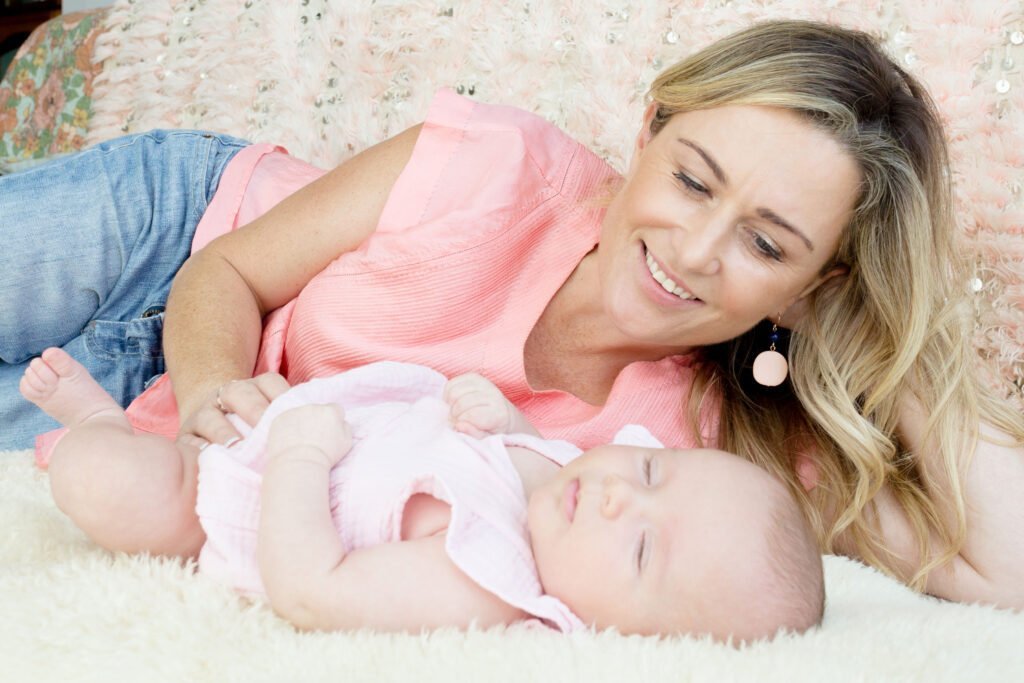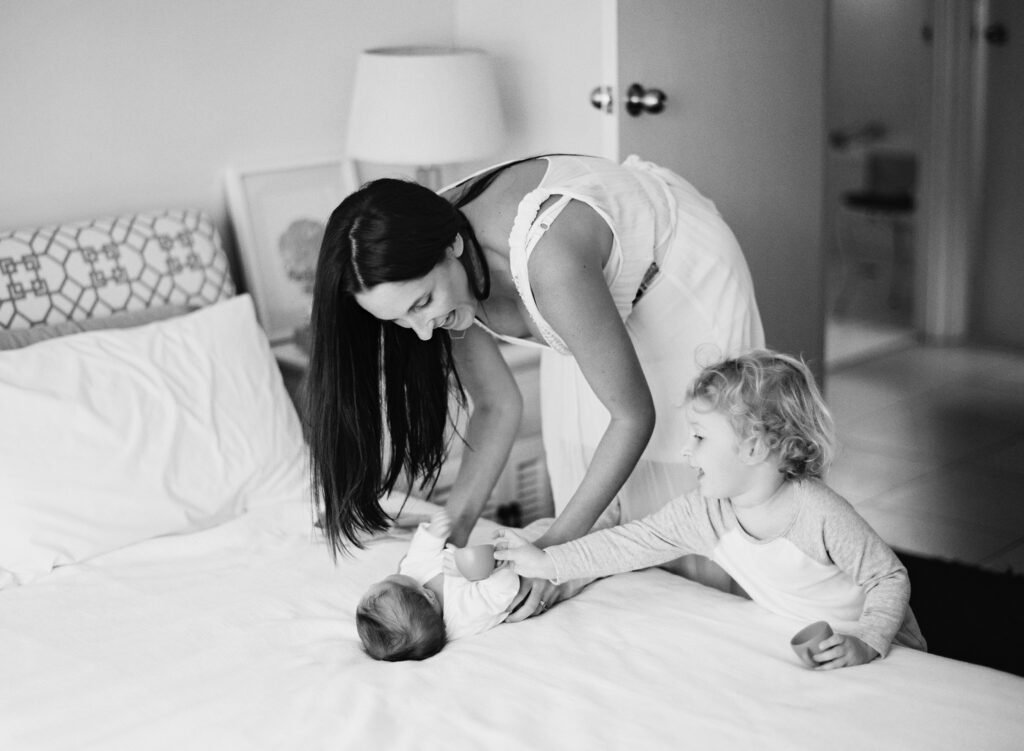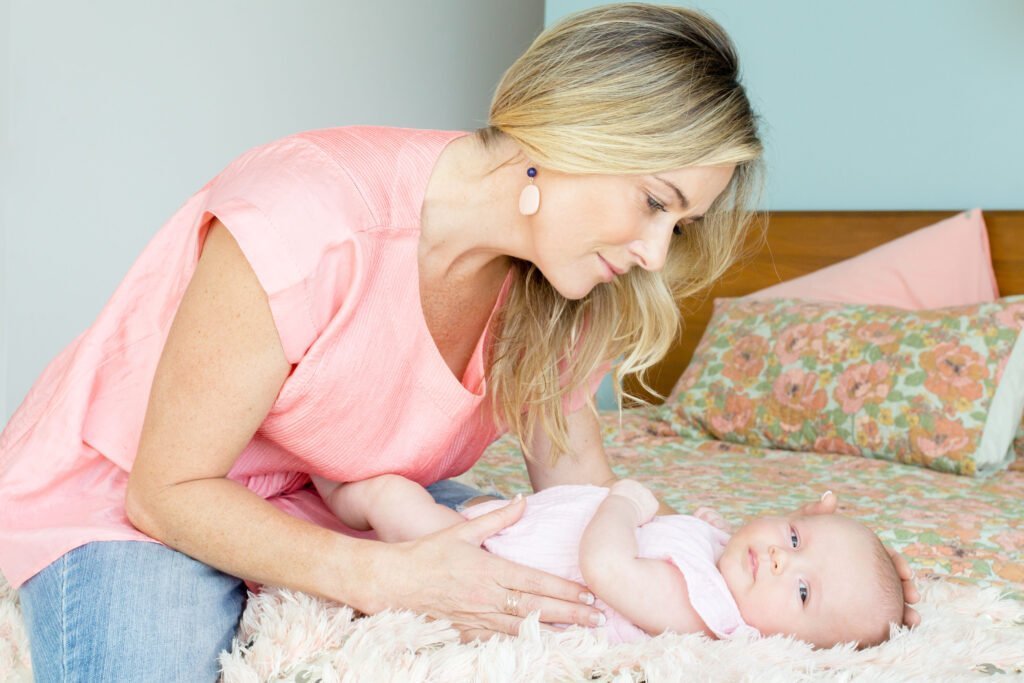
In my practice, I define myself as a Realistic Sleep Consultant, a label that reflects my unique approach to helping families navigate sleep challenges with confidence and compassion. Sleep training is not just about getting your child to sleep through the night; it’s about understanding and responding to your child’s cries and emotional needs. Many families have diverse needs when it comes to teaching their child how to sleep better or as many call it sleep training, and I don’t know many parents who want to follow the traditional cry-it-out method. I focus on providing tailored and gentle approaches that cater to the unique circumstances and preferences of individual families.
By fostering a supportive environment, we can reduce stress for both parents and children, promoting better sleep and emotional well-being. Here’s what that means for you:
Introduction to Sleep Training
Teaching your baby how to sleep is an essential part of a child’s development, and understanding its significance can help parents foster healthy sleep habits. Gentle parenting, a style that emphasises empathy, respect, and understanding, can be effectively applied to sleep training. By using gentle sleep training/ teaching methods, parents can help their child develop independent sleep skills, which in turn reduces the risk of sleep deprivation and its negative effects on mental health. Attachment parenting, another popular approach, focuses on building a strong bond between parent and child. This bond can be nurtured through responsive and sensitive parenting, including during sleep training. By combining these approaches, parents can support their child’s ability to fall asleep independently while ensuring they feel safe and secure.
Why I’m Not a Traditional Sleep Coach

Unlike traditional sleep coaches, I do not advocate for methods that involve leaving your baby to cry themselves to sleep. Techniques like the Cry It Out or Controlled Crying methods often lead to unnecessary distress for both parents and babies. These methods don’t align with my commitment to supporting parents in creating secure attachments and positive associations with sleep.
In my 20+ years of experience working with over 18,000 families, I’ve seen how deeply parents want to meet their child’s needs while also finding a sustainable balance for their family. My approach ensures that both parents and children feel understood and supported. Kids have unique emotional needs, especially during sleep training, and it’s crucial to address these needs with care. While certain approaches might work for some families in specific situations, my philosophy prioritises an individualised plan that respects your baby’s temperament, your parenting values, and your family’s unique needs, including your child’s emotions.
Why I’m Not a Holistic Sleep Coach: Embracing Attachment Parenting

Holistic sleep coaches often lean heavily towards attachment parenting principles, such as co-sleeping, feeding to sleep, and extended breastfeeding. While I wholeheartedly support secure attachment and the importance of meeting your child’s emotional needs, I understand that these practices don’t suit every family or every season of life.
My approach is about striking a balance through conscious parenting. For some, co-sleeping might feel right; for others, it might not be practical or sustainable. Feeding to sleep can be a wonderful bonding moment, but it can also become a challenge when your baby struggles to settle without it. I also address ‘big feelings’ by helping parents respond calmly to their child’s intense emotions, fostering emotional resilience. I help parents create routines and strategies that support a child’s development while respecting the parent’s need for rest, balance, and confidence in their choices, grounded in attachment theory to understand the emotional bond between parent and child.
Parenting is not one-size-fits-all. My role is to help you find what works best for your family—without guilt or judgment.
What Is a Realistic Sleep Consultant for Healthy Sleep Habits?

As a Realistic Sleep Consultant, I focus on creating practical, actionable plans tailored to your family’s needs, ensuring both you and your baby feel supported emotionally and practically. I help parents:
Establish a flexible daily routine: One that supports their baby’s natural rhythms and encourages better sleep.
Create positive sleep associations: Promoting comfort and security while avoiding reliance on external aids like rocking or feeding for every wake-up.
Balance overnight care: I’ll never tell you to ignore your baby at night. Instead, Instead, I guide you in responding to their needs while gradually encouraging longer stretches of sleep as they grow. Our guide on sleep and routine support for babies can assist you in this ongoing process that requires consistent effort and awareness.
Address the root causes of sleep challenges: Whether it’s nutrition, developmental leaps, or adjusting wake windows, we’ll look at the big picture to set your baby up for success, while also considering your need for more sleep.
I don’t offer a quick fix, but I do provide a clear path forward, empowering you to make meaningful changes with confidence and consistency. My settling plans are always grounded in understanding the holistic needs of both the baby and the parent—emotional, physical, and developmental.
Embracing Realism

I call myself a Realistic Sleep Consultant because my approach sits comfortably between traditional sleep training and attachment parenting. My goal is to help families transition from feeling stressed to thriving. Together, we create a plan that supports secure attachment while addressing the practicalities of modern parenting—because thriving parents raise thriving children.
With over 500 five-star reviews and heartfelt messages from families, I know this balanced, realistic approach is making a real difference. If you’re lookingfor a method that empowers you to meet your child’s needs with confidence, compassion, and clarity, I’m here to help. Let’s make sleep work for your family. Understanding your child’s individual needs when it comes to sleep is crucial for successful sleep training.
By focusing on helping your child navigate emotions and experiences, we can build resilience and trust through supportive interactions.
Creating a Sleep-Conducive Environment
Creating a sleep-conducive environment is vital for promoting healthy sleep habits in young babies. Start by establishing a predictable bedtime routine that signals to your baby that it’s time to wind down. Ensure the room is dark, quiet, and at a comfortable temperature to create a soothing atmosphere. Avoid stimulating activities before bedtime to help your baby wind down and relax. Gentle parenting techniques, such as baby wearing and co-sleeping, can also help your child feel safe and secure. However, it’s important to note that bed sharing can pose risks, so always prioritise your child’s safety. By creating a nurturing environment, you can help your child develop healthy sleep patterns, reducing the risk of sleep issues and promoting a secure attachment.
Addressing a Child’s Emotions
Addressing a child’s emotions is a critical aspect of sleep training, as it helps them feel safe and secure. Gentle parenting techniques, such as empathy and understanding, can help validate your child’s feelings and aid in their emotional regulation and development. For instance, when your child experiences separation anxiety, use reassuring phrases like “you’re safe, and I’m here” to help them feel more secure. By acknowledging and addressing your child’s emotions, you create a supportive environment that fosters healthy attachment and helps reduce negative emotions. Techniques like deep breaths, peek-a-boo, and soothing touch can also help your child calm down and fall asleep more easily.
Promoting Healthy Sleep Habits with Connection and Confidence
Supporting healthy sleep habits is a vital part of your child’s emotional and developmental well-being. Rather than relying on rigid “sleep training,” parents can nurture positive sleep foundations through gentle, responsive routines that honour their child’s cues.
Consistency, connection, and calm boundaries are key. A predictable bedtime routine, a secure sleep environment, and emotionally attuned settling strategies—like gradual withdrawal or responsive reassurance—can help children develop confidence in falling asleep with increasing independence, without tears or pressure.
Using positive reinforcement, connection-based reassurance, and realistic expectations, parents can help their child develop their natural sleep rhythms while maintaining a secure attachment. As your child grows, continuing to respond to their evolving sleep needs helps reduce sleep challenges and builds long-term confidence for both parent and child.
Ready to Start?
Learn more about my programs or contact me or book a consultation here. Together, we can create a realistic plan that supports both your child’s growth and your family’s well-being.

